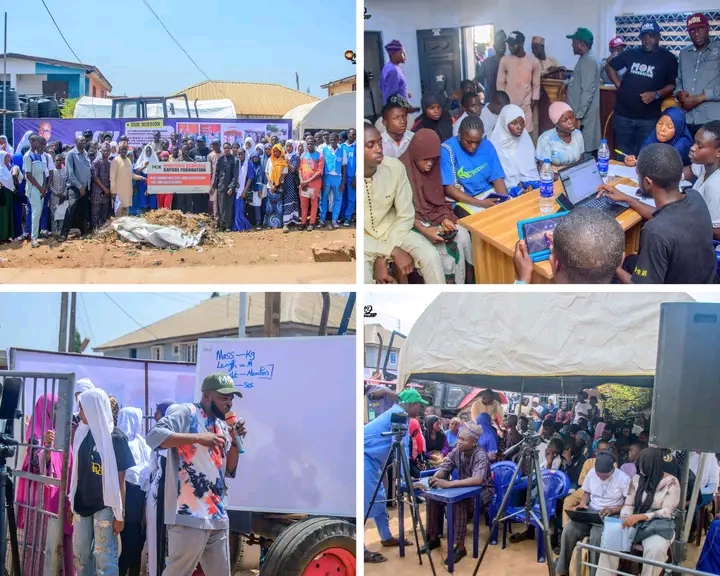High costs of food and prevailing hunger in Nigeria: A call for democratic control of Agriculture

By Dooyum Naadzenga
Nigeria faces an alarming rise in chronic hunger and food insecurity. Millions of households, particularly among the working class and poor farmers, are grappling with the harsh reality of starvation as food prices soar. Even middle-class families find it increasingly difficult to afford three square meals a day, highlighting a deepening food crisis that threatens the very fabric of Nigerian society.
Recent statements from Taofiq Braimoh, a representative of the Food and Agriculture Organization (FAO), reveal stark statistics: approximately 22 million Nigerians are expected to experience food insecurity in 2024, with projections suggesting that up to 82 million may be at risk by 2030. The 2024 Global Hunger Index places Nigeria at a dismal 110th out of 127 countries, indicating a serious hunger crisis fueled by a combination of historical neglect and the current administration’s neo-liberal policies.
READ ALSO: Allegation of 10,000 Deaths: Amnesty International…
While the Tinubu government alone cannot bear full responsibility for this crisis, its aggressive implementation of International Monetary Fund (IMF) and World Bank-backed reforms has exacerbated food insecurity. Policies such as the removal of fuel subsidies, continuous fuel price hikes, and the devaluation of the naira have left poor farmers vulnerable, struggling without access to essential agricultural inputs like seeds, fertilizers, and affordable financing.
Nigeria possesses 70.8 million hectares of arable land, yet only 44% is cultivated. This is a stark contrast to countries like China, which achieves remarkable food production with only 10% of its arable land under cultivation. The fundamental issue lies not in the land itself but in the underinvestment in agriculture and the failure of successive governments to support smallholder farmers. As a result, Nigeria’s cereal yields remain alarmingly low compared to global standards.
Rising Food Inflation
The National Bureau of Statistics recently reported that Nigeria’s inflation rate surged to 32.7% in September, reversing a brief period of decline. The burden of food prices has never been heavier, with essential items becoming increasingly unaffordable. For instance, a tuber of yam now ranges between N2,000 and N2,500, and the cost of a 50kg bag of rice has skyrocketed to around N100,000. Staple foods like beans and garri have also seen dramatic price increases, further compounding the cost-of-living crisis.
This situation is exacerbated by price gouging and the monopolistic practices of multinational companies that dominate the agricultural sector. These entities prioritize profit over the welfare of farmers, leading to skyrocketing prices for both inputs and products. Farmers now face crippling costs for feed and other essentials, pushing many into poverty and unemployment.
Government Intervention and Accountability
Despite the government’s acknowledgment of the food crisis, interventions have been inadequate and poorly executed. Promises of support for farmers have often turned into bureaucratic obstacles, with many rural producers receiving little to no assistance. Corruption and mismanagement have plagued initiatives intended to bolster agricultural productivity.
For example, the Ogun State Economic Transformation Program (OGSTEP) has been criticized for its counterproductive structure, wherein farmers are burdened with overwhelming financial obligations while government support remains elusive. This has left many farmers unable to sustain their livelihoods, trapped in a cycle of debt and despair.
The Need for a Planned Economy
To address the food crisis and eradicate hunger, Nigeria requires a fundamental shift in its agricultural policies. This involves substantial public investment in agriculture, emphasizing democratic control and management. A shift towards a planned economy, where key industries are nationalized and resources are allocated based on societal needs rather than corporate greed, is essential.
By prioritizing sustainable agricultural practices and empowering local farmers through access to modern technology and resources, Nigeria can begin to reclaim its agricultural potential. This transformation is crucial not just for food security but for the overall well-being of the population.
In conclusion, the ongoing hunger crisis in Nigeria is not merely a result of natural circumstances but a reflection of systemic failures exacerbated by neo-liberal policies. Working people and poor farmers must unite to resist these harmful practices and advocate for a system that prioritizes public welfare over private profit. Only through collective action and a commitment to a planned economy can Nigeria hope to solve its food crisis and secure a better future for all its citizens.










